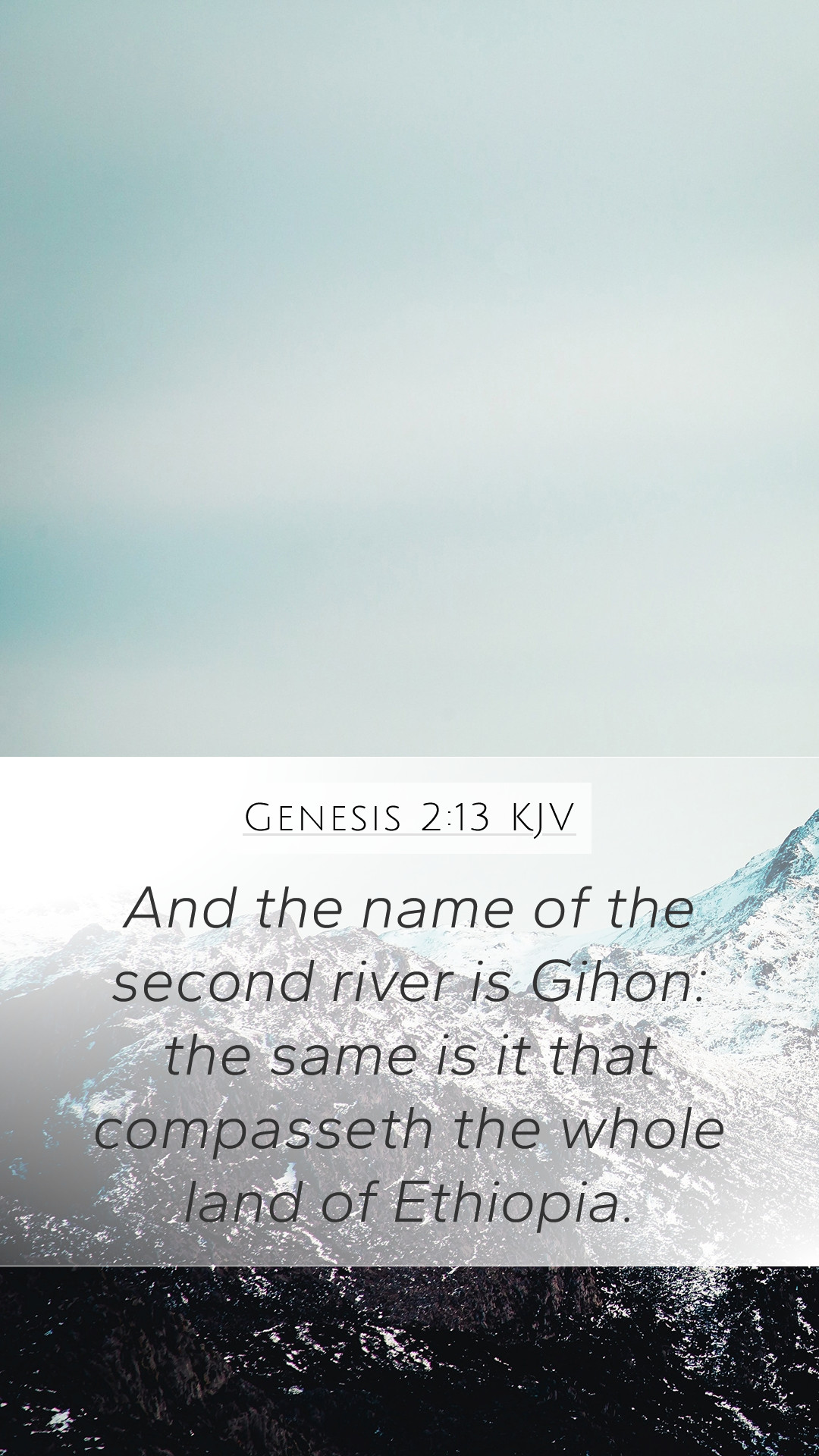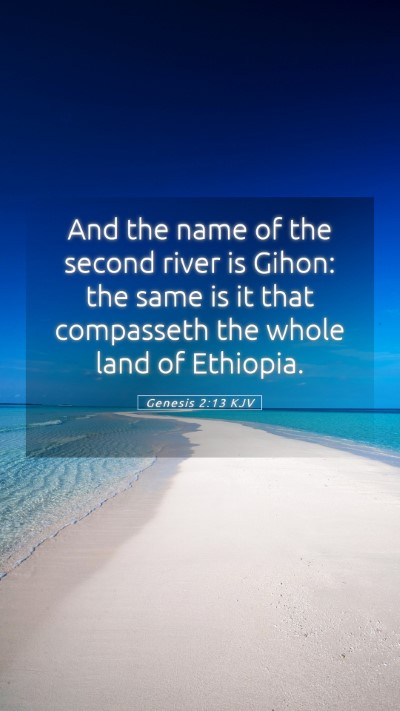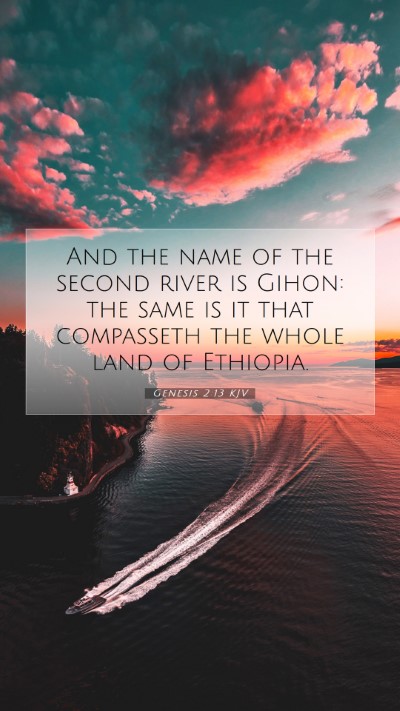Bible Verse Commentary: Genesis 2:13
Genesis 2:13 states, "And the name of the second river is Gihon: the same is it that compasseth the whole land of Cush."
This verse is part of the creation account in Genesis, which describes the formation of the world and the placement of mankind within it. Here, we explore the meaning of this passage through various insights provided by public domain commentaries, including those by Matthew Henry, Albert Barnes, and Adam Clarke.
Meaning and Interpretation
The significance of Genesis 2:13 can be understood through the following key points:
-
Identification of the Rivers:
The mention of the Gihon as a river emphasizes the detail of the Garden of Eden's geography. Albert Barnes notes that names given to rivers often carry historical or geographical significance that would have been familiar to the people of the time.
-
The Land of Cush:
The text refers to Cush, an ancient region, often associated with Ethiopia. Matthew Henry highlights that the description of the river encompassing Cush denotes the richness and abundance of this area, both in terms of natural resources and in significance to biblical narrative.
-
Symbolism and Spiritual Significance:
Adam Clarke suggests that rivers in scripture often symbolize the flow of life and divine provision. The Gihon may represent the outpouring of God’s blessings to humanity, highlighting the connection between God’s creation and His nurturing presence.
-
Cultural Context:
The historical context of the passage involves understanding the geographical landscape during biblical times. Understanding the rivers aids in realizing the ancient world’s resource distribution and the significance of the Garden of Eden as a place of purity and divine creation.
-
Typological Interpretation:
Some commentators note that rivers can be viewed as symbols for spiritual life, with Gihon signifying the spiritual nourishment provided by God’s Word, much like in Psalm 1 where the blessed man is like a tree planted by streams of water.
Application of Genesis 2:13
The implications of this verse extend beyond historical and geographical considerations; they also invite contemplation on how God’s creation is interconnected and how humanity exists within that web of divine design.
-
Understanding Creation:
By studying this verse, believers deepen their understanding of the Genesis creation narrative, enhancing their knowledge of God’s orderly design and intention for creation.
-
Nourishment in Scripture:
Just as rivers nourish the land, taking time to immerse in the Word of God nourishes the soul. The teachings of Christ, parallel to the rivers, provide spiritual sustenance.
-
Historical Context:
Understanding the historical and cultural context behind biblical texts enables believers to grasp their full meaning, shedding light on how these passages were relevant to original audiences and what they still mean today.
Cross References
Genesis 2:13 can be related to several other passages that share similar themes or contexts:
- Genesis 2:10 - Discusses the rivers originating in Eden.
- Isaiah 18:1 - Mentions the land of Cush in a prophetic context.
- Job 28:19 - Speaks of the value of understanding, using language that involves geographical imagery.
Conclusion
In summary, Genesis 2:13 provides a rich tapestry of meaning that spans geographical identification, spiritual symbolism, and historical understanding. Through careful study and contemplation, believers can draw essential lessons about God’s provision and the purpose of creation, further enhancing their Bible study insights and understanding Scripture as a whole.


